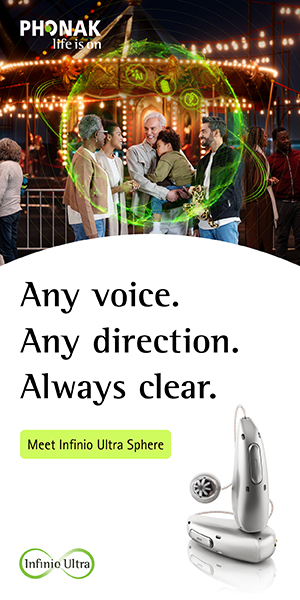San Diego, CA - Each year, some 20 of every 100,000 Americans will incur sudden sensorineural hearing loss, characterized by hearing loss that is greater than 30 dB in three contiguous frequencies and that occurs over a period of less than three days. Advancing age increases the possibility of having this condition.
The natural history of this disorder is that about 65 percent of patients spontaneously recover their hearing. The mainstay for treatment has been a short course of steroids.
A new research study has found that treatment with a longer course of steroids in addition to antivirals is a preferred option. The authors of "Diagnosis and Treatment of Sudden-Onset Sensorineural Hearing Loss: A Study of 51 Patients" are Mani H. Zadeh MD, Ian S. Storper MD FACS, and Jaclyn B. Spitzer PhD, from the Columbia University College of Physicians and Surgeons and New York Presbyterian Hospital, New York, NY. Their findings are to be presented at at the Annual Meeting and OTO Expo of American Academy of Otolaryngology--Head and Neck Surgery Foundation, September 22-25, 2002, at the San Diego Convention Center, San Diego, CA.
Methodology: A retrospective chart review identified patients from 1995 to the present undergoing treatment for sudden sensorineural hearing loss caused by unknown reasons. Patients accepted must have had a hearing loss occurring instantaneously, or developing over three days or less, a loss of a minimum of 30 decibels (dB) and occurring in at least three frequencies. All patients were seen within seven days of onset of hearing loss.
Fifty-one medical records were reviewed for course of the disease, evaluation by other physicians, and use of medications prior to presentation. History of otologic, vascular, or autoimmune disease prior to presentation was also noted. Gender, age, history of smoking, alcohol ingestion, drug use, or other chronic disease factors were noted.
All subjects were placed on a three-week steroid taper, a concurrent one-week course of valcyclovir (500mg TID), and a three- week course of famotidine (20mg BID) for gastric prophylaxis. They had follow-up appointments two weeks after the treatment was started, and an audiogram was conducted on the same day. At the second visit, subjective changes in hearing were noted. After the second visit, the patients were instructed to return in one month, with a repeat audiogram.
Audiograms were categorized into four sensorineural types: up-sloping, down-sloping, mid-frequency, profound loss. Down-sloping audiograms demonstrated an increased hearing loss at 8 kHz, as compared to 4 kHz. Up-sloping audiograms showed the opposite. Mid-frequency loss appeared as a "U shaped" on the audiogram. Finally, a SNHL of greater than 90 dB in all frequencies was considered a profound loss.
Results: There was a 73 percent recovery rate after treatment, which is above the general spontaneous recovery rate. Other findings included:
Conclusion: This is the first major study that treated all subjects with sudden onset sensorineural hearing loss on of an unknown origin, with antivirals and a three week steroid course.. Age, time between onset and treatment, and audiogram type were shown to influence the outcome while gender, vertigo, tinnitus, and laterality did not play a statistically significant role in the rate of recovery.
The researchers contend that further prospective studies are needed to evaluate the efficacy of each component of the treatment regimen and the effect of changing steroid dosages and length of use. With increased of knowledge about the SSNHL cause, more directed treatment could be used, instead of the empiric treatments currently employed. In the interim, this study recommends that patients with idiopathic sudden-onset SNHL be treated with steroid and antiviral therapy.

